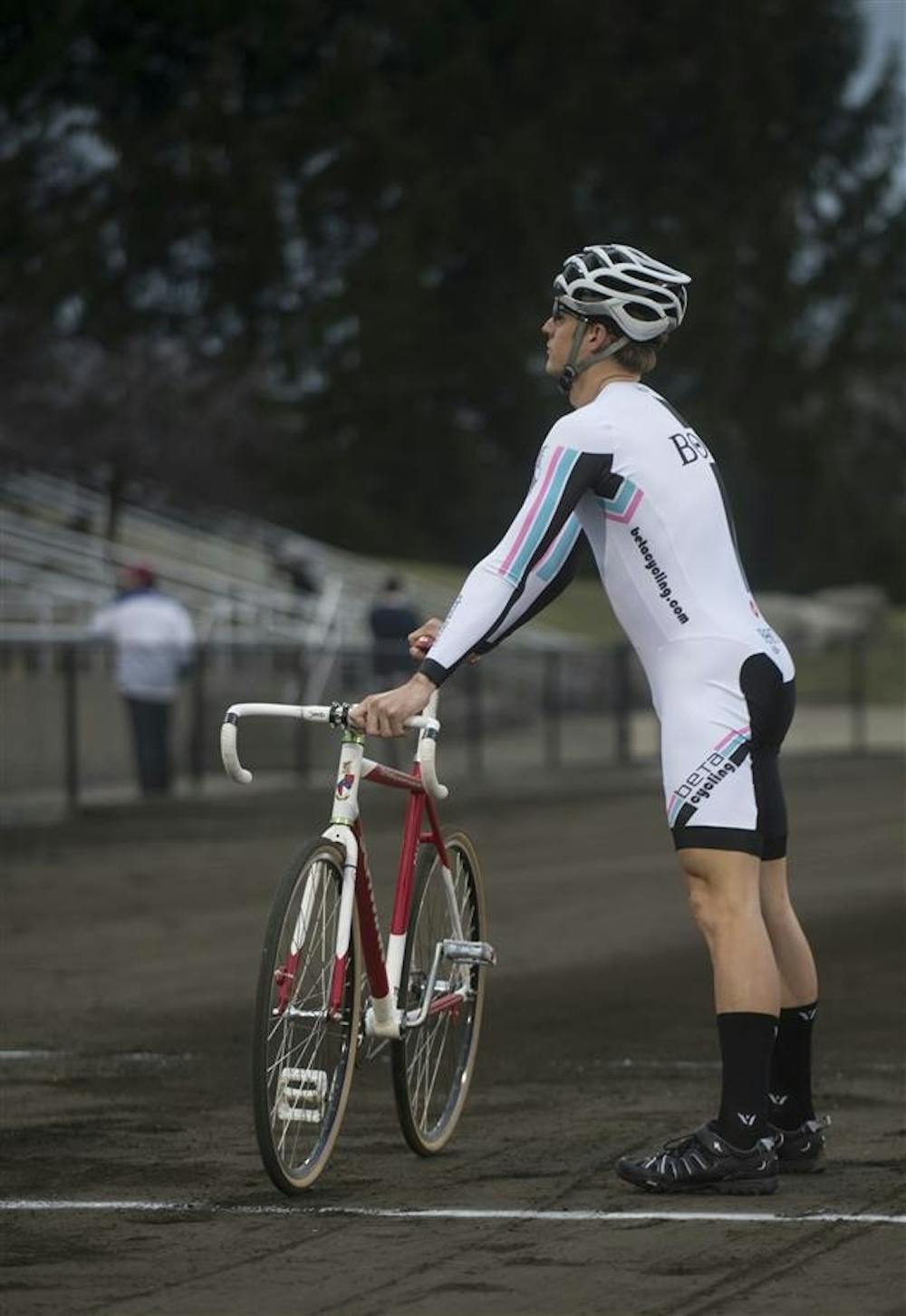Just after Beta Theta Pi senior rider Eric Anderson finished his qualifications lap Saturday morning at Bill Armstrong Stadium, he thought his team had relinquished the pole position.
After Anderson exchanged to senior Will Kragie, Kragie slipped on the pedals before gaining full control of the bike and taking off for his run, eating up precious tenths of seconds.
Anderson tweeted moments later, “...currently in first but with a fast track we likely won’t stay there. Onward!”
But Beta did stay there. Beta’s qualifying time of 2:21.30 earned them its second consecutive Little 500 pole and its fourth overall.
Black Key Bulls and CSF Cycling round out the front row, which is also the same as last year, although BKB and CSF have switched spots.
Defending champion Delta Tau Delta will start in 13th position, qualifying on its second attempt after faulting on its first. Perennial favorite Cutters will start 10th.
It is the first time since 1989 that the men’s race has had the pole-sitter defend the position the following year. Sigma Alpha Epsilon took the pole back-to-back-to-back years from 1987 to 1989.
Anderson said he and the team were unaware of that record, as they have chosen to keep most of their focus on the race, not qualifications.
“Quals itself isn’t necessarily our highest priority,” Anderson said, “but it’s always good to win at something you compete at. Going in, our goal was simply to throw down a clean run on the first attempt and if we happen to take the pole, then so be it.”
According to former Little 500 coach Tom Schwoegler, Anderson’s first lap was the third-fastest lap in qualifications history. Little 500 Race Director Jordan Bailey was unable to confirm, but said Schwoegler is extremely knowledgeable.
Anderson said Beta’s overall experience was the key to overcoming the early slip-up.
“Because we’ve practiced that exchange so many times,” Anderson said, “(Kragie) knew to stay calm, stay cool, stay collected and to get up to speed as quickly as possible.
“We’ve done that exchange probably 500 times, he knew how to react and he knew immediately how to get on the bike and finish the run.”
Black Key Bulls finished its run later in the day trailing the Beta’s attempt by just .29 seconds. It is the fastest run the team has put together in its eight years of existence at IU.
“Exchanges are the biggest part of quals, and all of ours were pretty smooth, so that was huge for us,” BKB senior rider Dan Kinn said.
Kappa Sigma and Phi Kappa Psi made some of the biggest jumps in the field from last year’s starting position to this year to move closer to the front of the pack.
Kappa Sigma will be starting fifth after starting last year’s race in the 32nd position. It is Kappa Sigma’s best start since 1981, when it also started fifth.
Phi Kappa Psi started in the final position (33rd) last season and qualified 11th this year. It is the fraternity’s 63rd consecutive qualification for the men’s Little 500, meaning it has qualified for every race.
Sigma Alpha Epsilon also jumped from 29th last season to 14th this year.
Cutters’ 10th position in the race will be its furthest back since 2008 when it started 13th. It also qualified for 10th in its first race in 1984, as well as 2004, and won both races.
This will be the first race since 1986 that Dodd’s House will not compete in, as it was bumped by Lambda Chi Alpha on Lambda’s third attempt. Dodd’s House missed the race by .57 seconds.
For the second consecutive year, all teams will be chasing Beta at the start. This year, Anderson said his team is more prepared for it.
“I think last year we kind of got a little carried away with the quals victory,” he said. “We kind of let some of the things being said about our brothers and our alumni get to our heads a little bit. It’s hard to stay focused on actually winning the race when everyone is telling you, ‘You guys qualified first, so you’re the best.’ But that really isn’t true in any way.”
Beta Theta Pi poles for second consecutive year

Get stories like this in your inbox
Subscribe





